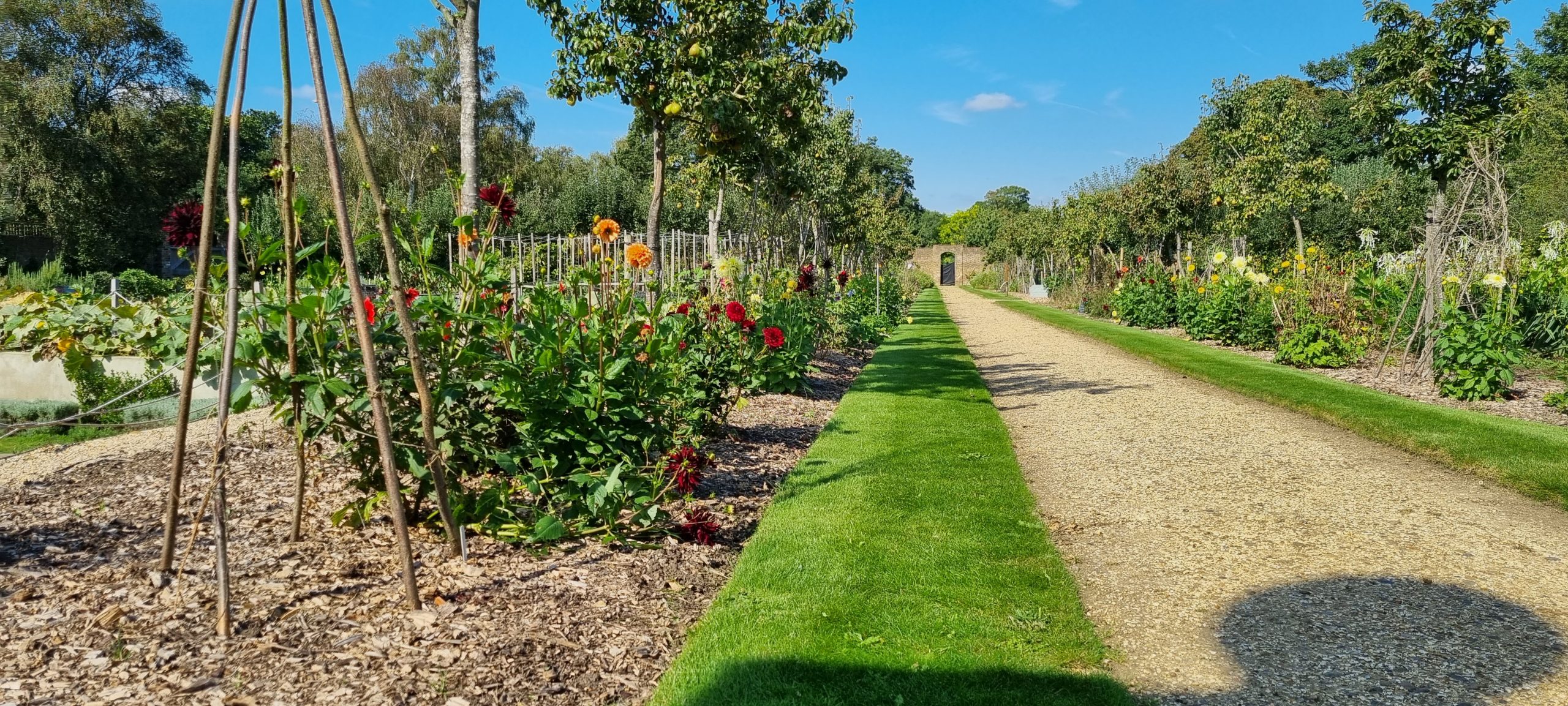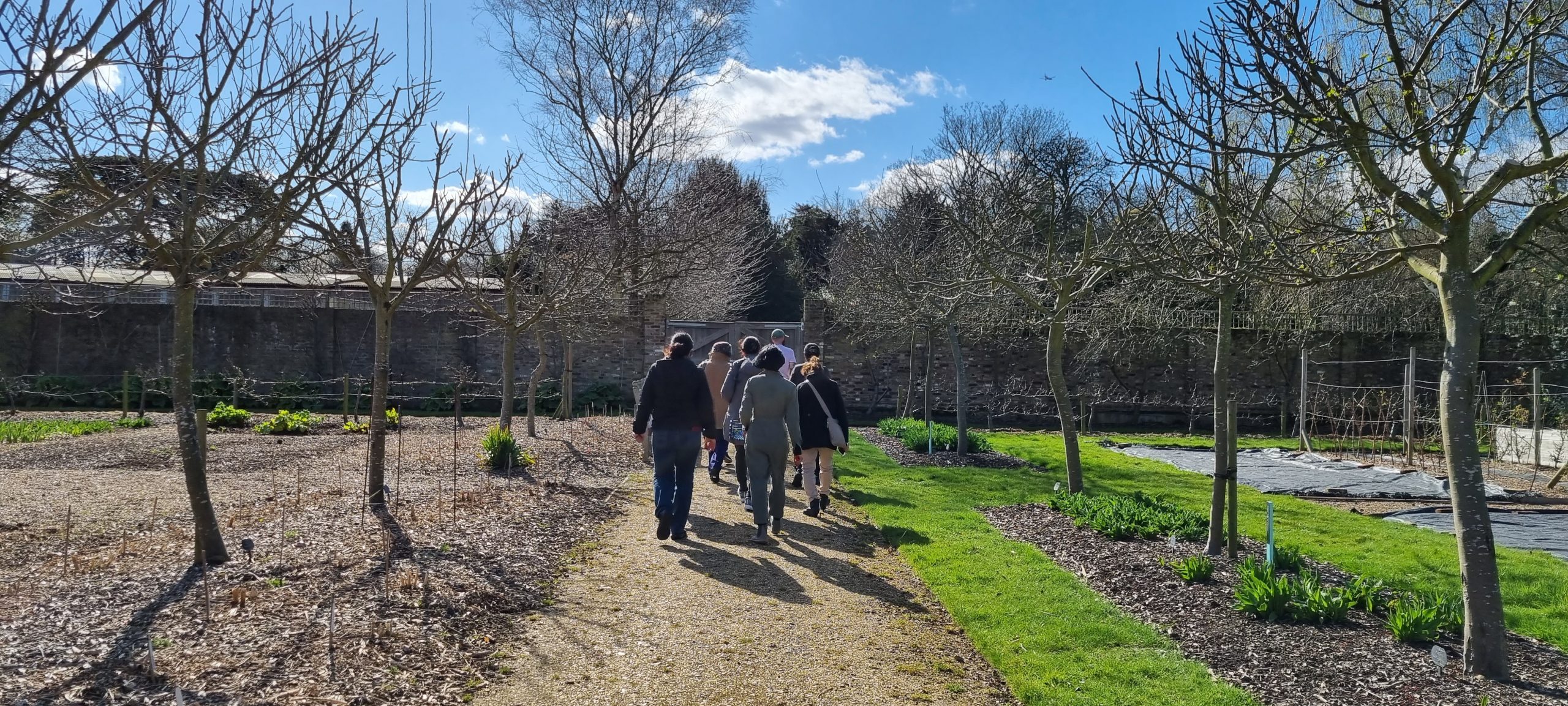Exploring the heritage of our plants with Border Crossings
Working in partnership with our Kitchen Garden team, volunteers, schools and local community groups, Botany Bay is a new project, led by Border Crossings, exploring the heritage of the plants.
Botany Bay aims to enrich our understanding of the journeys the plants in our Kitchen Garden have taken, the importance they hold for Indigenous and diaspora communities as well as their deep links to empire and colonialism.
Watch a video introducing the project. Look out for some scenes shot at Chiswick House & Gardens:
Our Kitchen Garden dates back to 1682 and is the oldest part of Chiswick House & Gardens. It pre-dates the construction of Chiswick House and the formation of the gardens as we know them today. The Kitchen Garden was part of Sir Steven Fox’s estate, Moreton Hall, and was originally intended as a walking pleasure garden. A place where he could demonstrate his wealth and status by cultivating fruits and plants. We know that pineapples and citrus fruits were cultivated here over 300 years ago.
We’re keen to explore the colonial links to the fruits and plants imported by Burlington and successive Dukes of Devonshire and introduce Indigenous provenance interpretation for our visitors, volunteers, community and school groups.

Border Crossings have already begun working with two of our local schools – Chiswick School and Cavendish Primary School – and other heritage partners to explore Indigenous approaches to plants and food. Soon they will begin working with several local community groups to explore the heritage and migration stories of the plants. We will be sharing these stories through new and creative interpretations and labels which will help highlight the deep global connections places of national heritage like Chiswick House, have been, and continue to be part of.
About Botany Bay
Botany Bay is a Learning and Participation project exploring the migration histories of plants and crops and their Indigenous cultural heritage with ecology and reciprocity. Aiming to stimulate and explore new ways of living, the project engages children and young people, volunteers and their communities with this heritage, exploring how a process of decolonising this heritage can lead to more sustainable lifestyles.
The pandemic and climate crisis have made a re-assessment and recalibration of human relationships with the non-humans an urgent necessity. By bringing together issues of decolonisation and ecology, this project aims to explore more sustainable ways of living through practical and meaningful experiences that connect people to plant life and heritage.
Botany Bay is evolving through a series of engagements with Indigenous thinkers, activists and artists exploring questions like:
- What is the heritage of the plants we grow and eat? How did they come to Britain?
- How were and are these plants grown and eaten by the indigenous people of the lands where they originate?
- What can Indigenous heritage approaches plant life and food teach us about sustainable and reciprocal cultivation?
- How can ceremony, performance and art in green spaces help us to engage more deeply with this natural heritage?
- What are the heritage politics of food sovereignty and sustainable food production?
- How can heritage gardens be labelled and interpreted for the public in a way that acknowledges the Indigenous origins of plants and their role in colonial histories?
Border Crossings and indigenous experts will be working with our volunteers and community groups to explore the plant heritage and relabeling of the Kitchen Garden.

Heritage partners:
- The Garden Museum
- Manchester Museum
- Chiswick House & Gardens
Education partners:
- Cavendish Primary School, Chiswick
- Chiswick School
- Hurst Drive School, Enfield
- Medlock School, Manchester
- Oswald Road Schools, Manchester
Funded by

